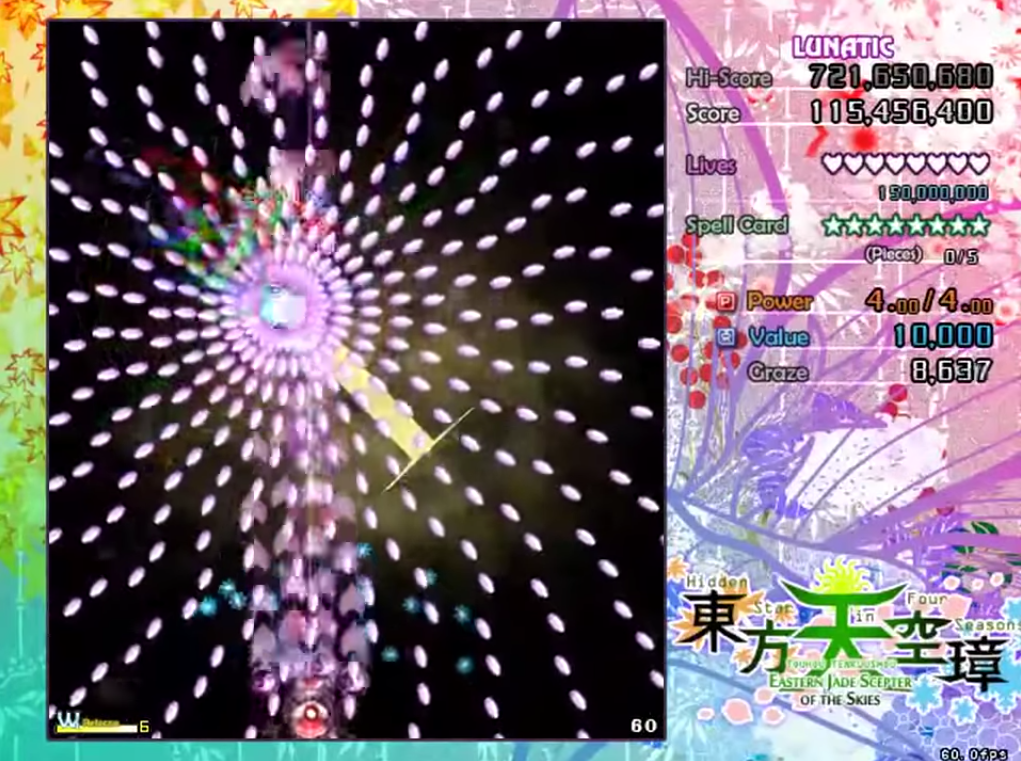Executional Difficulty
The first time I set out to write about Executional Difficulty as a concept was two years ago, and I wrote something nobody wants to read. Having written only academic papers up to that point, it read like an academic paper, which is fine if you’re a complete nerd. Since I care about the quality of my work, here is a revised attempt.
In any game there are really only two types of difficulty: things that are hard to do with your hands and things that are hard to do with your head. Things that are hard to do with your hands have what can be called Executional Difficulty. Dance Dance Revolution, for example, has a lot of Executional Difficulty. This is a very broad category. Having to do a lot of preplanned actions very precisely and having to quickly react to situations are different challenges, but both can be grouped together as Executionally Difficult.
Things that are hard to do with your head have what can be called Strategic Difficulty. Chess, for example, has only Strategic Difficulty. This is also a broad category that can be broken down in a lot of different ways. Having to memorize a lot of things at once and having to plan out a series of moves are definitely different challenges, but are both are grouped together as strategically difficult.
These definitions are loose, but these concepts are useful. As a designer, the main reason to know that there are two kinds of difficulty is that you can then tailor your game around it. It is important to remove all the kinds of difficulty you don’t want and polish the kinds that you do. That way you can keep the player experience more tightly controlled for intended play. If you only want to challenge a player’s ability to understand a puzzle, you need to be cognisant of how hard it is to physically input the steps needed to complete the puzzle.
Rigorously applying the categorizations runs into a few problems. Is having to visually parse a very chaotic scene an executional challenge or a strategic one? If you have to react and plan at the same time, what category does that fall under?

What kind of difficulty is this?
The important thing is to keep in mind that there are a lot of potential ways a game can be hard to play. To better think about how games ask players to deal with physical inputs, we’re going to look at a concept called Execution Tax.
Execution Tax
David Sirlin uses Execution Tax to describe inputs required by a game that are difficult for no good reason. If every time you jumped in a platformer you got extra height by tapping the jump button five times very quickly, that would be an execution tax. This would be especially true if there was almost never a time that a player didn’t want to get the extra height.
It doesn’t matter if the people who made the platformer didn’t know about the extra height input. Players who really care about the game are still forced to deal with that tax. If the designer also spent a lot of time making the game Strategically Difficult, the game would much harder than intended.
What is and isn’t an execution tax is relative, and some games don’t even need to worry about this at all. Applying this concept Dance Dance Revolution is just silly. If we’re worried about forcing the player to have to do too many inputs for no reason, how do we include Executional Difficulty at all?
The answer is to make sure that the parts of a game that are hard to do are rewarding to do. That sounds obvious, “you should make the game more fun” is some of the least helpful advice possible, even if it is true. What I mean is that instead of just making something hard to do at all, it should be hard to do well.
Next time I’m going to be writing about the Super Smash Bros. series as a case study for executional difficulty and the challenges of doing it well. If you want to get in contact with me, use twitter or send mail to contact@jxvd.games
Note: In trying to verify if David Sirlin came up with the phrase execution tax, I stumbled across this post. I don’t agree with everything Sirlin thinks about execution, but this one hews too close to what I’m saying to not mention it.